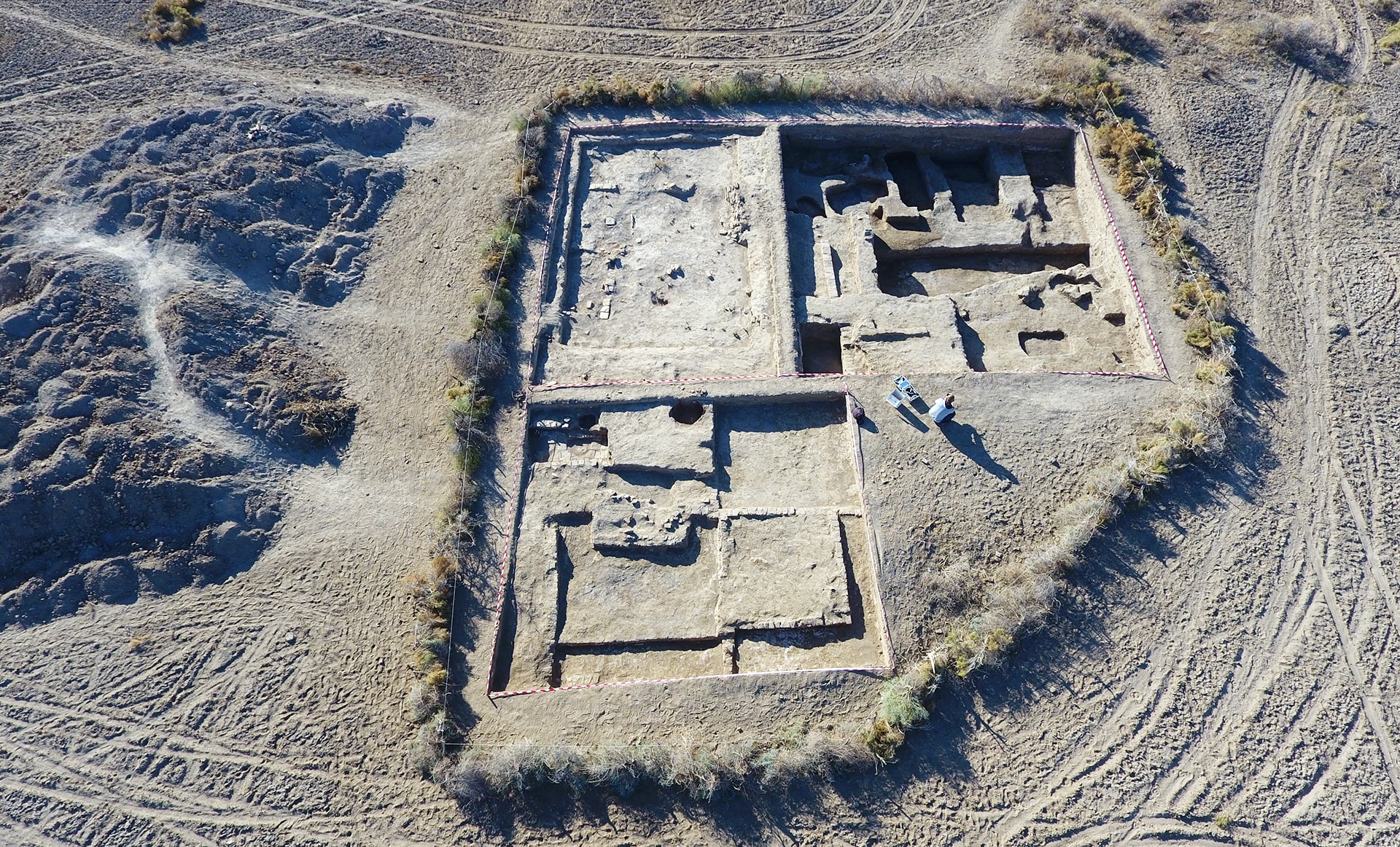Science-education films
The film relates about the activities of an archaeological expedition engaged in the study of the features of the historical and ethnographic formation of the nomadic culture of the northern Sary-Arka.
The project was carried out by the Kazakh Scientific Research Institute of Culture (KazRIC) by order of the Ministry of Culture and Sports of the Republic of Kazakhstan in 2018.
The film relates about archaeological research of the Nogerbek settlement, which is one of the most interesting medieval historical and cultural sites in Central Kazakhstan.
The project was carried out by the Kazakh Scientific Research Institute of Culture (KazRIC) by order of the Ministry of Culture and Sports of the Republic of Kazakhstan in 2018.
The film illustrates archaeological research of local centers of the unique Bronze Age culture of the north-eastern part of the Ustyurt plateau. In the field of vision of scientists is the ancient settlement of Toksanbay, especially its formation, development and decline.
The project was carried out by the Kazakh Scientific Research Institute of Culture (KazRIC) by order of the Ministry of Culture and Sports of the Republic of Kazakhstan in 2017.
Not far from the confluence of transparent Arys in the yellow waters of the Syr Darya, there are the ruins of a city whose glory and greatness have survived for centuries. It is an Otrar city. The film tells about new pages of the archaeological chronicle of Otrar - the pearl of the Great Steppe and an important city on the Great Silk Road in the medieval history of Central Asia.
The project “Archaeological research of Otrar and Otrar oasis” was carried out by the Kazakh Research Institute of Culture (KazRIC) by order of the Ministry of Culture and Sports of the Republic of Kazakhstan in 2018.
Mintobe is the largest Golden Horde settlement in the Aral Sea region. The city was located on a busy branch of the Great Silk Road, crossing the entire Aral Sea region. The archaeological research of the Myntobe settlement opens another page in the glorious history of the urban culture of ancient and medieval Kazakhstan.
The project "Archaeological research of the Golden Horde settlement Mintobe" was carried out by the Kazakh Scientific Research Institute of Culture (KazRIC) by order of the Ministry of Culture and Sports of the Republic of Kazakhstan in 2017.
According to history, from ancient times Turkestan and Sauran were the largest economic, commercial and cultural centers of southern Kazakhstan. Cities competed among themselves in scale, beauty and importance.
Walking through the city gates, finding yourself at the crossroads of two central streets paved with Karatau stone, seeing residential buildings and huge metallurgical furnaces, listening to the sounds of an empty city, you realize that a couple of centuries ago life was seething here.
Once the city stood on one of the main highways of the Great Silk Road. Hundreds of caravans loaded with silk, precious metals, spices stopped here, caravanserais and rabad were noisy. Today all this is already ruins.
The film is dedicated to the activities of the archaeological expedition of 2017, which opened new pages in the historical annals of Sauran.
The project "Archaeological research of the Sauran settlement" was carried out by the Kazakh Scientific Research Institute of Culture (KazRIC) by order of the Ministry of Culture and Sports of the Republic of Kazakhstan in 2017.
The film relates an archaeological study of the center of a unique archaic Botai culture. Botai is an Eneolithic settlement (4-3 thousand years BC) located on the right bank of the Iman-Burluk River in the Ayirtau District of North Kazakhstan Region. Although the Botai settlement was opened in 1980, archaeological work continues there today. The project "Research and reconstruction of socio-economic and ideological contexts in the settlement of Botai" is carried out by the Kazakh Scientific Research Institute of Culture (KazRIC) by order of the Ministry of Culture and Sports of the Republic of Kazakhstan in 2019-2020.
The Botai culture of North-West Kazakhstan is a unique historical and archaeological discovery on a global scale. At the moment, it is obvious that it was the Botai people who first domesticated the horses, which was the beginning of the entire nomadic civilization.
The film was shot in the framework of the project "Research and reconstruction of socio-economic and ideological contexts in the Botai settlement", carried out by the Kazakh Scientific Research Institute of Culture (KazRIC) by order of the Ministry of Culture and Sports of the Republic of Kazakhstan in 2019-2020.
Almost two thousand years of oblivion, the thickness of sand and dust, and still a little living flashes of human memory - the ancient Kultobe settlement almost disappeared in the stream of time. Today, the time has come to return to ancient Turkestan its Heart, the core, from where the most famous city of the Great Steppe began. The ancient Kultobe settlement is the oldest part of Turkestan, known in ancient times as Yasy. In world history and culture, Turkestan Yasa is forever connected with the personality of the great founder of the Turkic branch of Sufism, the thinker and poet Khoja Ahmet Yassavi.
The film was shot in the framework of the project “Restoration of historical sites of the Kultobe settlement”, carried out by the Kazakh Research Institute of Culture (KazRIC) with financial support from ERG (Eurasian Group).






